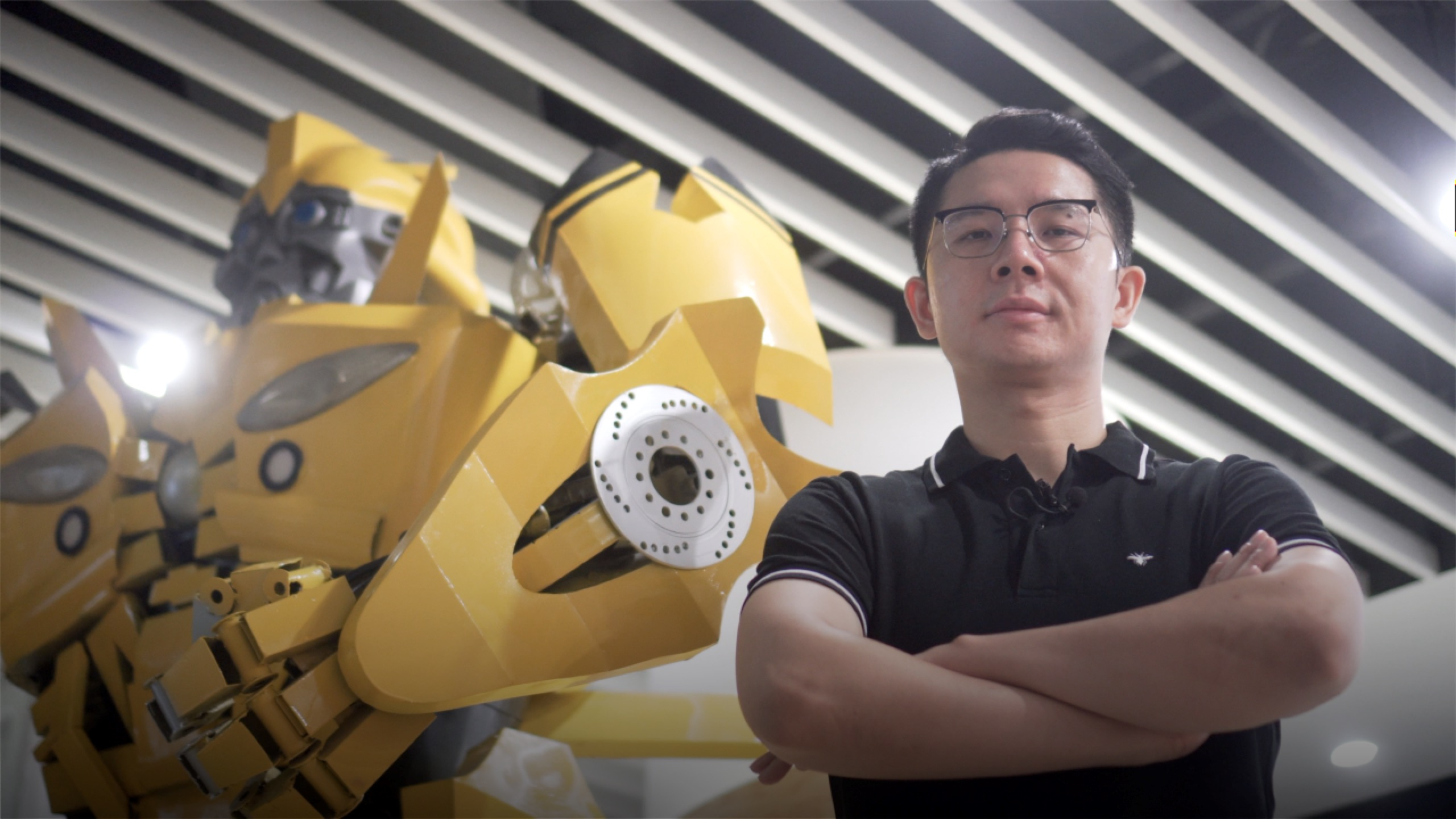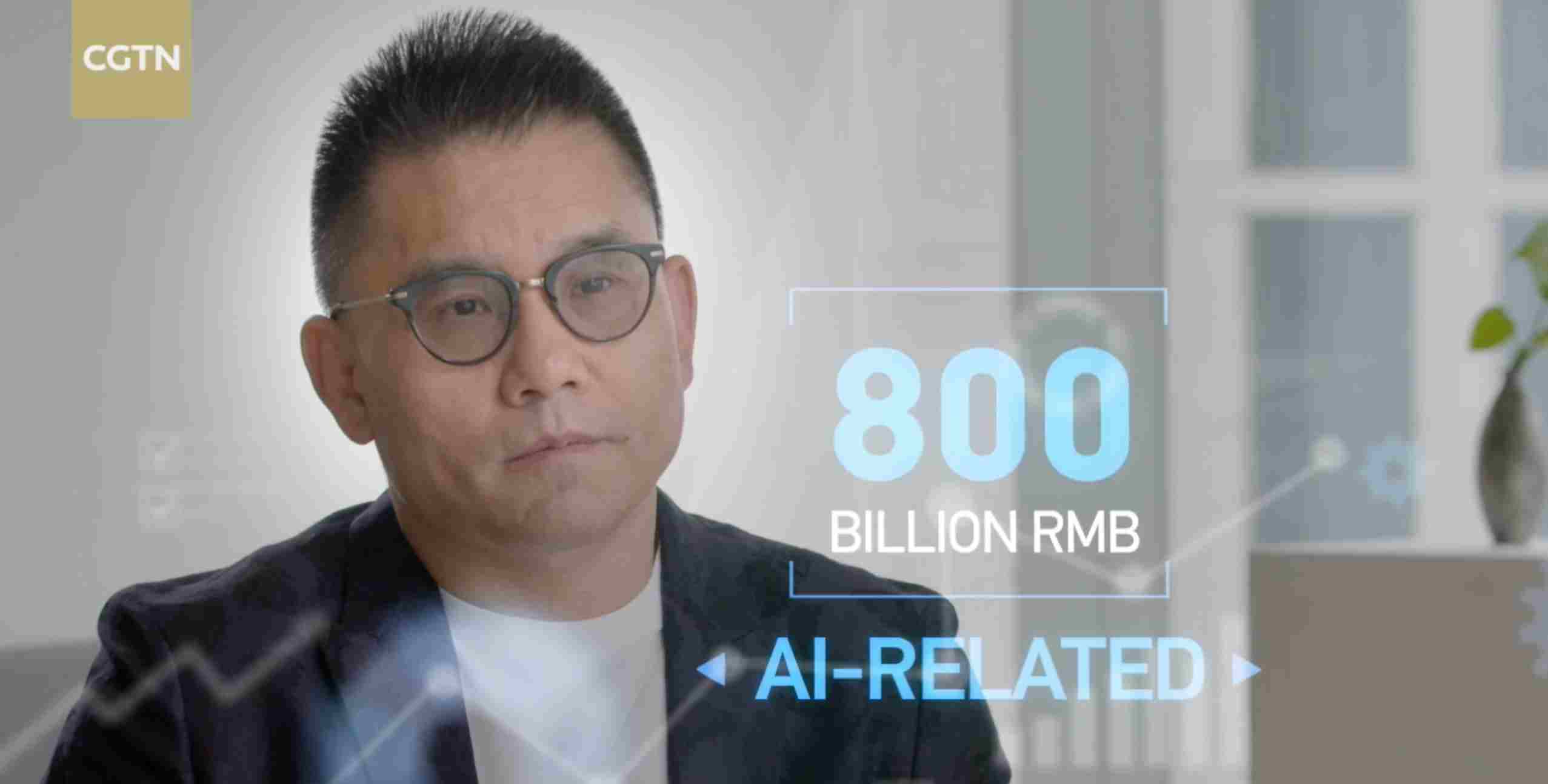05:55

“Mirror mirror on the wall, who's the fairest of them all?" Old tales tell a seemingly unbelievable story of a mysterious mirror, but modern technology has secretly turned the magic into reality.
In August, news went viral that police had caught criminal suspects who attended Chinese singer Jacky Cheung’s concerts. How did the police pick out the suspects among thousands of screaming fans? Well, the mysterious helping hand is AI facial recognition technology. The low-key yet powerful tool is no longer far-fetched, but entering the world of China’s top investors and startup companies.
Technical principles: How does AI facial recognition work?
Facial recognition is a technology capable of identifying or verifying a person from a digital image or a frame from a video source. There are multiple methods in which facial recognition systems work, but in general, they work by comparing selected facial features from given images with faces within a database.
Tang Wenbin, CTO of Face++, an AI computer vision technology company, vividly explained the workflow of AI. According to him, facial recognition is the identification of our appearance, including knowing the gender and age of a person. You may think it is like a brain or a neural network. You use data to train it, then, it learns the pattern. The challenge is using less data to build a better model and to compute a better algorithm.
Applications: Security, mobile phones, finance and beyond
Facial recognition technology has been traditionally associated with the security sector but today there is active expansion into other industries including retail, marketing and finance.
By 2022, the global facial recognition technology market is projected to generate an estimated 9.6 billion US dollars in revenue with a compound annual growth rate of 21.3 percent, according to MarketWatch.
In terms of security, AI cameras have been installed in cities to work day and night to help recognize wanted criminals. When the system spots a face in a mass database, the nearest police offices are alerted. The whole process can take as little as 20 minutes.
Meanwhile, China has issued the "Cybersecurity Law of the People's Republic of China" to protect the online security and privacy of citizens.
The law states that network operators shall establish and complete user information protection systems and strictly preserve the secrecy of user information they collect.
China has also developed a fast and convenient 3D facial unlock function with the new 3D sensor and leading facial recognition technique to apply the technology to mobile phones.
AI can also bring convenience to the finance sector. Facial recognition is the most efficient security means in opening a bank account, transferring money, shopping and paying online because it is the most convenient tool.
Business: From rapid acquisitions to fierce competitions
Chinese start-ups have seen the potential of AI facial recognition in simplifying and speeding up tasks in multiple industries. And the market is now booming, crowded and competitive.
The Chinese market is more competitive than that of the US. If your product was only one percent more accurate than the competitor’s, you could hold the most market share, according to Tian Feng, director of Alibaba Cloud Research Center.
Chinese startup companies went through three stages. According to Yin Qi, CEO of Face++, from 2013 until now, most of the companies have been focusing on developing core technology. In the second stage, especially from 2017, they have been focusing on the project of AI and industry. Yin Qi has deemed that the combination of AI and the internet is a major opportunity.
However, in 2018, when AI is applied to different industries, he thinks the industry they have occupied is like a bargaining chip. Whether you have one or two of those chips that can participate in next stage development is the key.
“When you delve into the industry, you have to divide and reallocate the profit with other enterprises. But I think the potential of this industry is essential and the chain of supply and demand will certainly change,” Yin Qi said.

Yin Qi, CEO of Face++ /CGTN Photo
Yin Qi, CEO of Face++ /CGTN Photo
Big investors are placing bets on China’s facial recognition start-ups
China’s facial recognition start-ups are attracting huge investments.
In July, Chinese facial recognition companies, according to a pair of reports, were close to raising as much as 1.6 billion US dollars. Those investments would build on billions of dollars that investors have already put into the companies.
But not all AI companies are under the investment spotlight. Sheng Xitai, founder of Hongtai Aplus & Chairman of Hongtai Capital Holdings lists the conditions that he finds attractive. He thinks commercialization is one of the crucial points. And there are a couple of important points. First, the company has to have a solid technological background. Second, it needs to find a field that is narrow and deep enough that no other big companies have focused on it. Third, the companies should have to look for a suitable case to apply their technology. Fourth, they have to develop verifiable customers, not the pseudo-conceptual ones. Finally, the company needs to develop loyal buyers. That will lead to sustainable development.

Sheng Xitai, founder of Hongtai Aplus & Chairman of Hongtai Capital Holdings
Sheng Xitai, founder of Hongtai Aplus & Chairman of Hongtai Capital Holdings
China is embracing the AI revolution and has made breakthroughs in facial recognition. However, the focus of AI research in China is a bit different than that of US. China’s application of innovation is more developed than that of other countries, but from the perspective of technology, we need more research in essential fields, such as computer vision and deep learning.
But in general, the blueprint and prospects for the application of AI are bright for many. If applying AI to different industries is a marathon, the companies probably have only just got out the blocks. Tian Feng also thinks that in the future, everybody will be able to use AI as it will soon become a basic tool for work and life. For an investor like Sheng Xitai, the AI industry has just begun. The number of fields that it can be applied to is incomparable to the internet and has unlimited possibilities.
Supervisor: Zhang Shilei
Producer: Wen Yaru
Video Director: Zhou Yiqiu
Video Editors: Zhou Yiqiu and Huang Yichang
Special Effects & Animation: Pan Yongzhe, Wang Li and Zhang Tao










